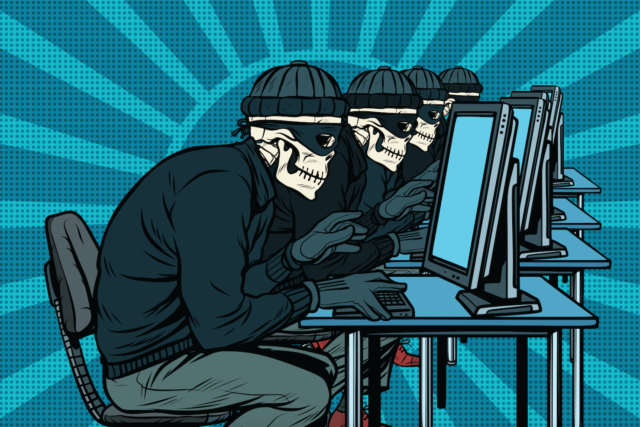If in 2021 the United States presented the highest percentage growth in Gross Domestic Product (GDP) since 1984, at 5.7%, now the market has increasingly worsened the prospects for the country in 2023, making a dreaded word return to discussions: recession .
Financial institutions respected in the market, such as Goldman Sachs Citigroup and the bank of america , have recently increased the chance that the world’s largest economy will experience a contraction next year. In general, the probabilities pointed out by these institutions vary between 30% and 40%.
Precisely because of its size, a contraction of the US economy would have a knock-on effect on the world, which means that Brazil would not escape unscathed. The global crisis of 2008, for example, started in the United States before it spread, as did the 1929 crisis.
This does not mean, however, that all countries would be affected to the same degree. In the case of Brazil, experts consulted by the CNN Brasil Business point out that some economic characteristics can limit the damage, but the damage will depend on external and internal factors still uncertain.
US scenario
Alberto Ramos, Goldman Sachs economist for the Latin America points out that the institution recently raised the percentage for the chance that the US economy will enter recession in 2023 or 2024, and it is now 48%.
According to him, the increase was due to the significant increase in restrictions on the country’s financial conditions due to the cycle of high interest rates in the Federal Reserve started in March 2022.
the latest move was a 0.75 percentage point hike in interest rates a biggest since 1994 , leaving open the possibility of carrying out another elevation of this magnitude. As a result, the market began to project an even greater economic slowdown, which generated fears of a recession.
“The Fed is trying to walk a narrow path, to bring inflation down and rebalance a very buoyant labor market. It’s a fine calibration, and it’s not always possible to do it without leading to a recession in the short term”, he evaluates.
Ramos points out that, looking at historical data, there hasn’t been a situation where a country’s unemployment rate has increased by more than three percentage points without pushing the country into a recession. Therefore, the US attempt to have a “soft landing” is difficult.
André Perfeito, chief economist at Necton Investimentos, points out that, so far, the median of market projections still do not point to a recession, but the scenario may “change quickly due to the expectation of a more acute monetary tightening”.
“The reading now is that, in order to control inflation, which escapes from monetary policy, it needs a greater tightening, and then the economy slows down more”, he says.
The central bank’s challenge, in his view, is to reconcile an economic slowdown, which would contain the highest inflation in 40 years , with a generation of unemployment that would harm the economy. The tendency in the market has been to bet that the municipality will fail.
Livio Ribeiro, a researcher at Ibre-FGV, says that there is a need for growth in the United States to decelerate to a level lower than it could, but that does not mean it needs to go into recession as well.
“The probability of this happening today is low. The point is that it could have a scenario with a more pronounced deceleration on time, which would already be dangerous,” she says.
The North American scenario is even worse in Ribeiro’s view because, at the same time that the country carries out a monetary restriction via interest, it is also cutting a fiscal boost carried out during the pandemic and a “quantitative tightening”, a term that summarizes the reduction of your balance sheet.
Combining this, the movement tends to amplify the power of damage to financial conditions. It’s a doubt, it may not lead to a recession, but the calibration demands care, it’s pulling a lot of brakes at the same time
Livio Ribeiro, associate researcher at FGV IBRE
Effects in Brazil
For Ribeiro, before discussing the effect of a possible recession, it is important to remember that the slowdown in the US economy and the tightening of financial conditions would already affect emerging countries, including Brazil.
“The problem is that it would lead to a rise in interest rates globally. By itself, it makes the scenario more challenging, and with inflation showing signs of maintenance, and not deceleration, it gets even worse. It is a tone of stagflation, with confluence of slowing growth and inflation,” she says.
In addition, there would be an increase in global uncertainty, which would impact assets in emerging countries with a withdrawal of investments .
The researcher believes that the timing of a possible economic crisis in the United States is unfortunate due to Brazilian domestic challenges, especially with the presidential election in this year. “The next government will face important challenges in the domestic field. The bad international scenario gets even worse”.
Among the problems brought about by a recession, he cites a reduction in trade, exports to the United States and other countries and, mainly, a drop in commodity prices due to reduced demand.
He points out that Brazil does not usually “take off from the global cycle”. That is, if the scenario gets worse outside, it tends to get worse internally.
At FGV, the forecast is that the Gross Domestic Product (GDP ) of 2023 is already bad due to the monetary restriction scenario, but he believes that it is not possible to directly link a recession in the United States with one in Brazil, despite the risk increasing.
Ramos, from Goldman Sachs, also claims that the impact for Brazil would be negative. Even so, he believes that the performance of the Brazilian economy next year will depend much more on domestic factors, such as the results of the elections, than on external ones.
For him, the recession in the United States would lead to a tendency to strengthen the dollar but the projection that the Selic rate will continue above double digits in 2023 would reduce this space for appreciation.
“The Copom will likely need to maintain a more restrictive policy for longer, and may require budget cuts. He could cut rates in the second half, but it gets harder with a recession,” he says.
According to Perfect, the main impact of the recession would be the trade balance , with reduced exports to the country. However, the resilience of the balance amid the recent lockdowns in China a more important partner, indicates that the effects may be smaller.
“What is perhaps bad is that the recession would be anticipated, they will not let inflation generate recession, they will anticipate it to control via high interest rates, and this increase can generate worse effects for Brazil”, he evaluates.
He cites consequences such as a reduction in investment and, if monetary policy is effective, control of commodity prices. In this sense, the elements that would lead to recession in the United States would harm Brazil more than the recession itself.
“The recession can jeopardize recovery, growth, but we are well ahead in this process of raising interest rates, and we must cut sooner. For 2023, you need to consider what the government would be like, understand what it will do in the fiscal area. You can spend more at first and help GDP in the short term, or you can not spend, cut and then harm GDP”, he ponders.
China and United States
Perfect says that, despite the US recession causing concern, the impact would be much smaller than if the problem were in China.
“Our economy interacts less with that of the United States, it is no longer the biggest trading partner, and our interest rates are at a comfortable level, with good reserve levels, all of this creates a more shielding perspective, but everything will depend on the outcome of the elections,” he says.
Livio Ribeiro, from Ibre, assesses that crises in China and the United States would have different effects. In the Chinese case, the biggest impact would be the fall in the prices of commodities balance sheet reduction and dollar appreciation.
“The problem in the United States is more that it creates a much worse global environment, so it’s less direct, but it creates a backdrop that makes the challenges bigger,” he says.
For the Goldman Sachs economist, the slowdown in the United States would impact more countries with more intense trade flows, such as Mexico and Colombia than Brazil, which is closer to China.
He points out, however, that “what we export to China are commodities, and if you don’t sell, you can sell in other markets, the location itself doesn’t matter, but the price. China slowing down impacts Brazil not necessarily by losing market, but by reducing commodity prices”.
In the case of the United States, it is more difficult to find other markets to export the most purchased Brazilian products and, therefore, the damage could be greater.
“All this is a matter of degree. The deeper the recession in the United States, the worse, and it could offset any mild slowdown in China,” she says.
Source: CNN Brasil







